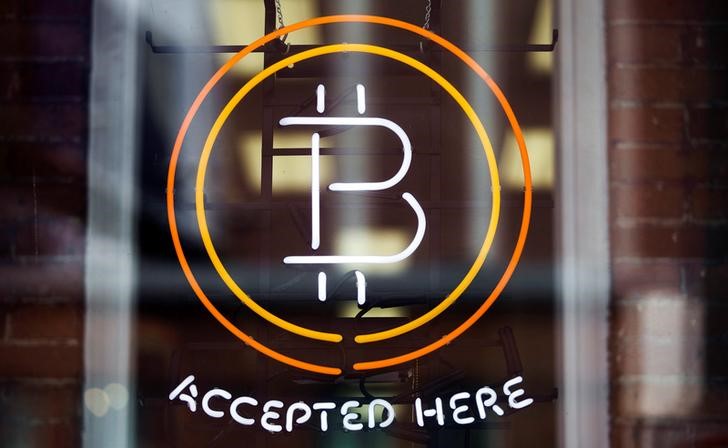The SEC's approval of 11 proposed spot Bitcoin ETFs on January 10 marks a significant milestone, affirming the growing acceptance and legitimacy of Bitcoin in traditional financial markets.
This development follows BlackRock's filing of an S-1 with the SEC in June 2023, signaling the initiation of the approval process.
“We have been adamant that a spot Bitcoin ETF approval would be the single most important catalyst for Bitcoin in the near term,” analysts at Cantor Fitzgerald said.
“In our view, an approved spot ETF boosts Bitcoin's accessibility, credibility, and network effects. We view today's approval as a landmark milestone in Bitcoin's short history, with substantial implications for long-term price appreciation.”
Here’s everything you need to know about Bitcoin ETFs.
Bitcoin ETFs listing
The ETFs will be listed on the following exchanges:
BZX
- ARK 21Shares Bitcoin ETF (ARKB)
- Fidelity Wise Origin Bitcoin Fund (FBTC)
- Franklin Bitcoin ETF (EZBC)
- Invesco Galaxy Bitcoin ETF (BTCO)
- VanEck Bitcoin Trust (HODL)
- WisdomTree Bitcoin Fund (BTCW)
NYSE Arca
- Grayscale Bitcoin Trust (GBTC)
- Bitwise Bitcoin ETF (BITB)
- Hashdex Bitcoin ETF (DEFI)
Nasdaq
- BlackRock's iShares Bitcoin Trust (IBIT)
- Valkyrie's Bitcoin Fund (BRRR)
Background
The groundwork for this approval was laid in August 2023 when a landmark decision in Grayscale Investments, LLC v. SEC deemed the SEC's denial of Grayscale's spot Bitcoin ETF as arbitrary and capricious.
The court emphasized the need for consistency in regulatory decisions, questioning the disparate treatment of spot Bitcoin ETFs compared to Bitcoin futures ETFs.
Nasdaq's filing of a 19b-4 form for a BlackRock Spot Bitcoin ETF set the stage for subsequent proposals from various asset managers. These filings included surveillance-sharing agreements to prevent market manipulation, showcasing the industry's dedication to addressing regulatory concerns.
Among the ETF proposals, the ARK 21Shares Bitcoin ETF stood out by amending its filing to include a Surveillance-Sharing Agreement (SSA) with the CME Futures markets. The final deadline for this proposal was January 10, 2024, leaving the SEC with no legal option to further delay the decision.
An approval for ARK 21Shares could set a precedent for other ETFs, given the absence of substantial distinctions between this proposal and others. The SEC, lacking an incentive to favor one over the other, logically opted to maintain consistency in its approach within the crypto market.
The applicants for the pending Bitcoin Spot ETF resubmitted S-1 filings, incorporating fee structures and specifying authorized participants. Initially, many fee structures outlined 'waiver periods,' presenting reduced fees for a defined duration or until a target AUM was achieved.
Market implications
Numerous research firms have sought to assess the initial influx that Spot Bitcoin ETFs might attract. Various analyses draw parallels between the introduction of a U.S.-listed gold ETF (SPDR Gold Trust ETF, GLD) and the potential launch of Spot Bitcoin ETFs.
The launch of GLD made precious metal investing mainstream, alleviating concerns related to insurance, shipping, and storage vaults. Similarly, a Bitcoin Spot ETF could streamline the process, eliminating the need to find a Bitcoin custodian, navigate self-custody complexities, or engage in futures markets.
According to Cantor Fitzgerald's analysis, GLD achieved $1 billion in asset value on its first trading day, reached $5 billion in its initial 15 months, and soared to $76.7 billion in assets by 2011, briefly surpassing SPY as the world's largest ETF. Standard Chartered, a UK-based bank, recently projected a total inflow of $34 billion for Bitcoin Spot ETFs.
Nigel Green, a long-term cryptocurrency enthusiast and CEO of the deVere Group, believes that the SEC approval of Bitcoin ETFs could send the world's digital asset to as much as $60,000 over the next 3 months.
"This approval by the financial regulator of the world’s largest economy is a landmark moment for Bitcoin and the wider crypto market and boosts prices in the long-term, even if there’s a sell-off in the near-term," Green said.
Bitcoin ETFs fees
As the SEC's approval opens new avenues for investors to access Bitcoin, the cryptocurrency community anticipates increased market participation, potentially driving further adoption and market growth.
Bitcoin price has been moving higher in recent months in anticipation of the positive SEC decision. Crypto stocks have been on a surge, with Coinbase (NASDAQ:COIN) up over 110% since October.
“Now that Spot Bitcoin ETFs are approved, we believe investors should turn their attention to its potential impact on Bitcoin price. We believe this approval acts as a major demand shock to the market, occurring a few months before Bitcoin's recurring supply shock: the halving event expected in April 2024.”
As of 1/10, all Bitcoin ETFs had a 0.0% fee during waiver periods, except for BlackRock, whose waiver period offers 0.12% for 12 months.
Fees range from 0% for 6 ETF issuers (BITB, ARKB, FBTC, BTCW, BTCO, and BRRR) for the initial 6 months, except for BRRR, which is offering 0% fees for the first 3 months. Outside of this group, HODL set its expense ratio at 0.25%, while fees for EZBC are 0.29%. DEFI and GBTC stand at 0.9% and 1.5%.
Conclusion
The approval of spot Bitcoin ETFs marks a pivotal milestone in Bitcoin's fifteen-year history. This gold seal of approval signifies the legitimization of the digital asset within the traditional financial markets. The ETFs will now act as enablers, allowing certain investment funds to access exposure with reduced barriers to entry, particularly in terms of cost, risk, and custody. Focus now shifts towards the trading details, associated costs, custody, market demand, etc.
